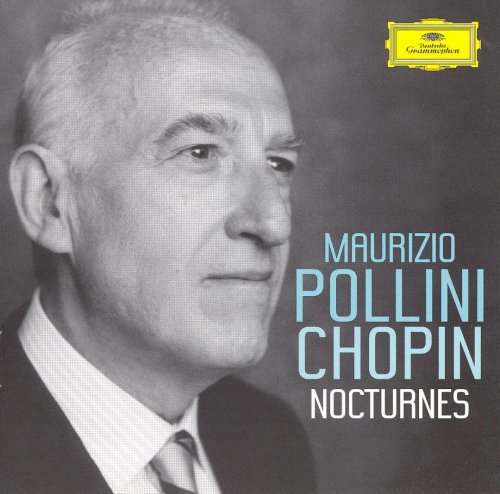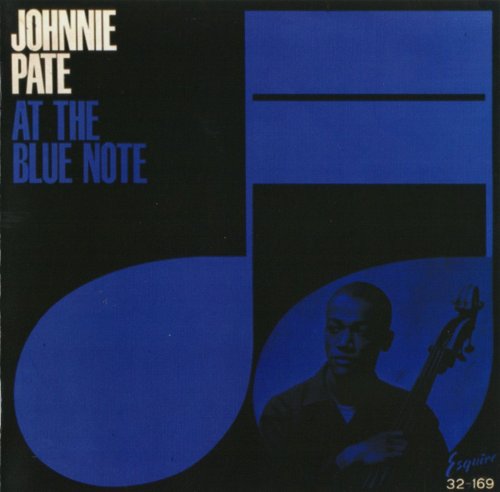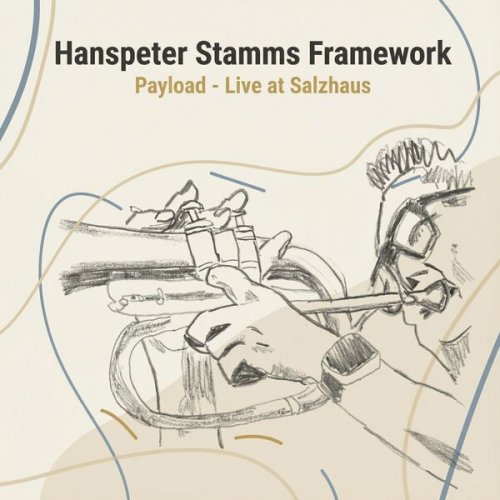Maurizio Pollini - Chopin Nocturnes (2005)

Artist: Maurizio Pollini
Title: Chopin Nocturnes
Year Of Release: 2005
Label: DG Deutsche Grammophon
Genre: Classical
Quality: FLAC (image+.cue, log, Artwork)
Total Time: 01:30:21
Total Size: 256 MB
WebSite: Album Preview
Tracklist:Title: Chopin Nocturnes
Year Of Release: 2005
Label: DG Deutsche Grammophon
Genre: Classical
Quality: FLAC (image+.cue, log, Artwork)
Total Time: 01:30:21
Total Size: 256 MB
WebSite: Album Preview
CD1:
01. [Op. 9 no. 1] Nocturne in B flat minor - Larghetto (4:47)
02. [Op. 9 no. 2] Nocturne in E flat major - Andante (4:03)
03. [Op. 9 no. 3] Nocturne in B major - Allegretto (5:40)
04. [Op. 15 no. 1] Nocturne in F major - Andante cantabile (3:58)
05. [Op. 15 no. 2] Nocturne in F sharp major - Larghetto (3:11)
06. [Op. 15 no. 3] Nocturne in G minor - Lento (4:12)
07. [Op. 27 no. 1] Nocturne in C sharp minor - Larghetto (4:13)
08. [Op. 27 no. 2] Nocturne in D flat major - Lento sostenuto (4:55)
09. [Op. 32 no. 1] Nocturne in B major - Andante sostenuto (4:09)
CD2:
10. [Op. 32 no. 2] Nocturne in A flat major - Lento (4:38)
01. [Op. 37 no. 1] Nocturne in G minor - Andante sostenuto (5:21)
02. [Op. 37 no. 2] Nocturne in G major - Andantino (5:55)
03. [Op. 48 no. 1] Nocturne in C minor - Lento (5:09)
04. [Op. 48 no. 2] Nocturne in F sharp minor - Andantino (6:36)
05. [Op. 55 no. 1] Nocturne in F minor - Andante (4:20)
06. [Op. 55 no. 2] Nocturne in E flat major - Lento sostenuto (4:34)
07. [Op. 62 no. 1] Nocturne in B major - Andante (5:59)
08. [Op. 62 no. 2] Nocturne in E major - Lento (5:17)
09. [Op. post. 72] Nocturne in E minor - Andante (3:35)
Even for listeners who have venerated the piano playing of Maurizio Pollini ever since he won the Chopin Competition in 1960, even for listeners who have publicly averred that Pollini is bar none the greatest living Chopin player, even for listeners who have worshipped his recordings of Chopin's etudes, preludes, polonaises, ballades, and scherzos, there has always been a gnawing fear that inevitably Pollini would someday get around to recording Chopin's nocturnes. The fear was that for all his intellectual lucidity -- and no one, not even Alfred Brendel, has his level of brilliance -- and for all his invincible technique -- and no one, not even Martha Argerich, has his super human virtuosity -- Pollini has no heart. There were good reasons for that fear. In the more ardent etudes, in the tenderer preludes, in the moodier polonaises, in the more fervent pages of the ballades, in the rapt central sections of the scherzos, Pollini did sometimes seem cool, possibly overly objective, and probably even too reserved. And as he methodically worked his way through Chopin's piano works, what would happen when someday Pollini invariably got around to the nocturnes, the most passionately sensual, deeply emotional, and profoundly spiritual works Chopin ever composed?
With the release of Pollini's Nocturnes in 2005, someday arrived -- and it turned out to be far colder than the worst fears. For all his undeniable brilliance and virtuosity, Pollini cannot begin to comprehend the nocturnes. His playing is astoundingly beautiful with the ideal balance between light and shadow and repose and movement, but his light lacks heat, his shadows lack menace, his repose lacks rapture, and his movement lacks release. For all the beauty of his playing -- and captured in Deutsche Grammophon's translucent sound, his performances are surely among the most beautiful ever recorded -- Pollini's playing here is all surface with no heart, no soul, and no spirit, and even those listeners who rank Pollini as one of the three greatest living pianists will have to acknowledge that his Nocturnes are a terrible mistake.
With the release of Pollini's Nocturnes in 2005, someday arrived -- and it turned out to be far colder than the worst fears. For all his undeniable brilliance and virtuosity, Pollini cannot begin to comprehend the nocturnes. His playing is astoundingly beautiful with the ideal balance between light and shadow and repose and movement, but his light lacks heat, his shadows lack menace, his repose lacks rapture, and his movement lacks release. For all the beauty of his playing -- and captured in Deutsche Grammophon's translucent sound, his performances are surely among the most beautiful ever recorded -- Pollini's playing here is all surface with no heart, no soul, and no spirit, and even those listeners who rank Pollini as one of the three greatest living pianists will have to acknowledge that his Nocturnes are a terrible mistake.



![Dave Douglas - Four Freedoms (2026) [Hi-Res] Dave Douglas - Four Freedoms (2026) [Hi-Res]](https://www.dibpic.com/uploads/posts/2026-01/1769535616_tf9hcodjkxidc_600.jpg)




![Jesper Thörn - Stille (2026) [Hi-Res] Jesper Thörn - Stille (2026) [Hi-Res]](https://www.dibpic.com/uploads/posts/2026-01/1769692710_p5yy87fosszfb_600.jpg)